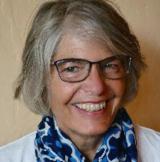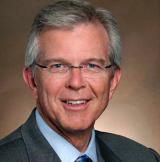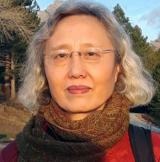Six faculty members named CU Distinguished Professors
The University of Colorado this week welcomed six new members to its roster of Distinguished Professors, a title signifying the highest honor awarded to faculty across the CU system’s four campuses.
CU Distinguished Professors are tenured faculty members who demonstrate exemplary performance in research or creative work; a record of excellence in promoting learning and student attainment of knowledge and skills; and outstanding service to the profession, the university and its affiliates.
The CU Board of Regents on Nov. 7 voted to approve the cohort of faculty members, recommended by President Todd Saliman with the concurrence of the systemwide Committee of Distinguished Professors. This year’s honorees will be formally celebrated during a board meeting in spring 2024.
Including this year’s honorees, 144 Distinguished Professors have been named since the title’s establishment in 1977.
Distinguished Professors for 2023 are:

Brian Argrow, Ph.D., Glenn L. Murphy Professor, Ann & H.J. Smead Department of Aerospace Engineering Sciences; Director, Integrated Remote & In-Situ Sensing Systems Program (IRISS), College of Engineering and Applied Science, University of Colorado Boulder
Elected to the National Academy of Engineering in 2022, Argrow is widely recognized for his pioneering efforts in the design and deployment of unmanned aircraft systems (UAS) to penetrate tornadoes, supercell thunderstorms and other severe weather events, gathering previously unattainable data. These remarkable results required aerodynamic and sensor sophistication, but also the development and utilization of mobile communications networks that enabled highly sophisticated communication and telemetry in incredibly dynamic environments.
Argrow is one of the first pioneers to study and later utilize mobile ad hoc networks to gather scientific information. He also is well-known for his work on atmospherics and low-density gas dynamics that are highly relevant to the development of super- and hypersonic vehicles.
Argrow’s impact extends beyond the scientific and engineering realms. His work on unmanned aircraft systems has been central in shaping the Federal Aviation Administration’s standards of operation for small UAS. His work continues to inform, and at times change, those FAA UAS flight standards. His severe weather work has been helpful in the development of better models to predict severe weather events, and in so doing, to mitigate the loss of property and life to those events.
Argrow is among the lead architects of the nationally and internationally recognized Smead Aerospace Engineering Sciences undergraduate curriculum. He served as the associate dean of education in CEAS for five years during a period of incredible growth and transformation in the college. Part of the CU Boulder community since 1992, Argrow has been honored with many awards and accolades for outstanding teaching, service and leadership.

Marie Banich, Ph.D., Department of Psychology and Neuroscience and the Institute of Cognitive Science, College of Arts & Sciences, University of Colorado Boulder
Banich is a cognitive neuroscientist whose research specializes in using brain imaging techniques to understand the neural systems that allow us to direct our attention and our actions so that we can prioritize, organize, and target our behavior in a goal-oriented manner, abilities often referred to as executive function. Her research reflects the essence of cognitive neuroscience, successfully bridging the gap between psychology and neuroscience.
She is a pioneer in the use of functional magnetic resonance imaging (fMRI). This technique measures spatiotemporal changes in blood oxygenation, as opposed to MRI, which is most commonly used to provide a static snapshot of the body’s interior structures. Banich was among the first cohort of investigators to use fMRI to investigate the function of areas of the brain.
More recently, Banich has developed groundbreaking methodological approaches that allow scientists to begin to understand the brain circuits that may be involved in supplanting unwanted thoughts, which commonly occur in individuals with psychological challenges. These novel techniques, many now standards in the field, involve complex integration of neural, physiological, behavioral and computational principles and tools in ways that provide insights into the linkage between certain types of brain function and human behaviors.
Banich’s popular textbook Cognitive Neuroscience (Cambridge Press) is in its fifth edition. Beyond being a thought leader in the field of cognitive neuroscience, Banich is a highly knowledgeable, passionate and rigorous teacher and mentor. A member of the CU Boulder community since 2000, her service achievements include serving as director of the Institute of Cognitive Science (2004-16) and being the founding and current executive director of the Intermountain Neuroimaging Consortium, CU Boulder’s research facility for neuroimaging, since 2010.

Sean Colgan, Ph.D., Professor of Medicine and Joel Levine-Fred Kern Jr. Chair in IBD Research, School of Medicine, University of Colorado Anschutz Medical Campus
A trailblazing scientist in the field of gastroenterology, Colgan has broadened our understanding of inflammation and host-microbiome interactions. His lab studies mucosal inflammation with a focus on intestinal inflammation in the context of inflammatory bowel disease and other gastrointestinal diseases.
Colgan’s scholarship has fundamentally changed our understanding of pathophysiology across many areas of medicine, including drug resistance in cancer, how the microbiome influences host immunity, the impact of microbial metabolic products on mucosal injury and wound repair and how inflammation may affect gut motility and cellular health in colonic disorders such as Crohn’s disease and ulcerative colitis.
Recruited to the CU Anschutz Medical Campus from Harvard Medical School in 2006, Colgan has published prolifically in the field of mucosal biology, inflammation, and intestinal pathophysiology. He is a world-renowned authority in the field and has given hundreds of invited national and international lectures. Locally, he is a transformational leader who has attracted over $45 million in National Institutes of Health research funding.
Colgan’s service includes his roles as founder and director of the Mucosal Inflammation Program, vice chair for research in the Department of Medicine and director for the GI and Liver Innate Immune Programs. Further service includes many committees at the institutional, national and international levels and most recently as associate chief of the Division of Gastroenterology in the Department of Medicine.
Colgan has published over 270 peer-reviewed publications and has served on the editorial boards for top journals. He has mentored countless scientists and physician-scientists who have not only gone on to successful independent research careers, but also to mentor others to success.

Frank Verloin deGruy III, M.D., M.S.F.M., School of Medicine, Department of Family Medicine, University of Colorado Anschutz Medical Campus
DeGruy has devoted his career to helping improve the health of people by creating a more coherent and comprehensive system of primary health care. For the last three decades, he has concentrated specifically on transforming primary care by integrating behavioral health care into its fabric, by partnering with community health and public health resources, and by engaging patients and their families in the care process.
He served as the Woodward-Chisholm Professor and chair of the Department of Family Medicine at the CU School of Medicine (1999-2021) and is past president of the North American Primary Care Research Group, past president of the Collaborative Family Health Association, and past board chair of the Family Physicians Inquiries Network.
Trained as a health services researcher, deGruy led many studies on somatization, depression and other mental disorders in the primary care setting. These early research efforts included the development of psychometrically sound measurements and the use of mixed methods designs and analyses. He also served as a reviewer of grant applications for the NIMH, AHRQ, HRSA, the Robert Wood Johnson Foundation and others.
DeGruy recently retired from the editorial boards of the Annals of Family Medicine, Families, Systems, and Health, and Psychiatric Times. He served as the founding director of the Alabama AHEC Program, and served on several national advisory boards, such as the MacArthur Foundation’s Depression in Primary Care Initiative, the Robert Wood Johnson Foundation’s Depression in Primary Care Program, and the Executive Committee of the National Network of Depression Centers. He served as a consultant to 34 family medicine departments in the United States and was elected to the Institute of Medicine (now the National Academy of Medicine) in 2008.

Shemin Ge, Ph.D., Department of Geological Sciences, College of Arts & Sciences, University of Colorado Boulder
An award-winning hydrogeologist, Ge studies groundwater in the Earth’s crust with a focus on understanding how groundwater flow interacts with and is affected by other geologic processes, and how these interactions advance science and offer insights on societally relevant issues. Her research provides deeper insights and understanding into earthquakes and related phenomena, both natural and human-caused.
Ge’s scholarly accomplishments in hydrogeology have been recognized with several awards, including her being selected as a Fellow of the American Geophysical Union and the Geological Society of America (GSA). In 2019-20, she was a Fulbright U.S. Scholar in Hong Kong. In 2018, she was presented with the GSA O.E. Meinzer Award, the highest international honor in the science of hydrogeology. In 2017, Ge was invited to South Korea to lead an investigation near a geothermal site where a geological disturbance damaged homes and caused injuries. A global thought leader in her field, Ge’s work is not only theoretical but has real-world impact.
Throughout her career, Ge has taught at all levels, and she is well-known for teaching field courses. Students praise her as being rigorous as well as kind and caring. She has a remarkable mentorship record, having graduated over 30 M.S.- and Ph.D.-level graduate students and mentored around 20 undergraduates in her lab work.
A professor at CU Boulder since 1993, Ge served as chair of Geological Sciences at a time when the department achieved a No. 1 ranking in U.S. News and World Report. She has served in posts at the NSF and assumed a lead role for the U.S. Geological Survey Powell Center working group on (human) induced seismicity.

Dragan Maksimovic, Ph.D., Department of Electrical, Computer, and Energy Engineering, College of Engineering and Applied Science, University of Colorado Boulder
Maksimovic is a leading figure in power electronics, the technology that ties renewable sources such as photovoltaics and wind turbines to the electric power grid, propels hybrid and electric vehicles, powers a countless variety of electronic systems, and makes it possible to operate battery-powered mobile devices for many hours. His research has been recognized by election as a Fellow of the Institute of Electrical and Electronics Engineers (IEEE) and several major awards from the IEEE Power Electronics Society, including the 2023 IEEE William E. Newell Power Electronics Award.
Maksimovic, who joined CU Boulder in 1992, has served as the co-director of the Colorado Power Electronics Center since 1999. He is one of the most highly cited researchers in the field of power electronics, with over 350 publications in key journals with over 43,000 citations. He is a co-author of two widely used power electronics textbooks and holds 44 US patents.
His teaching innovation includes developing new hands-on courses at the undergraduate and graduate levels, including a sophomore-level Electronics Design Laboratory that has become a mainstay of the electrical engineering curriculum. Over the past five years, Maksimovic has contributed substantially to the online Coursera master’s degree in electrical engineering pioneered at CU. This performance-based admissions program is first-of-a-kind, and it has achieved total enrollment of over 100,000 students across the world.
A model of servant leadership, Maksimovic has served on the department’s curriculum, laboratory, graduate studies, and strategic planning committees. At the college level, he has served on the promotion and tenure committee. He serves his profession through the IEEE Power Electronics Society, where he has led major conferences, chaired committees, served on editorial boards of flagship publications, and been selected as a Distinguished Lecturer.

